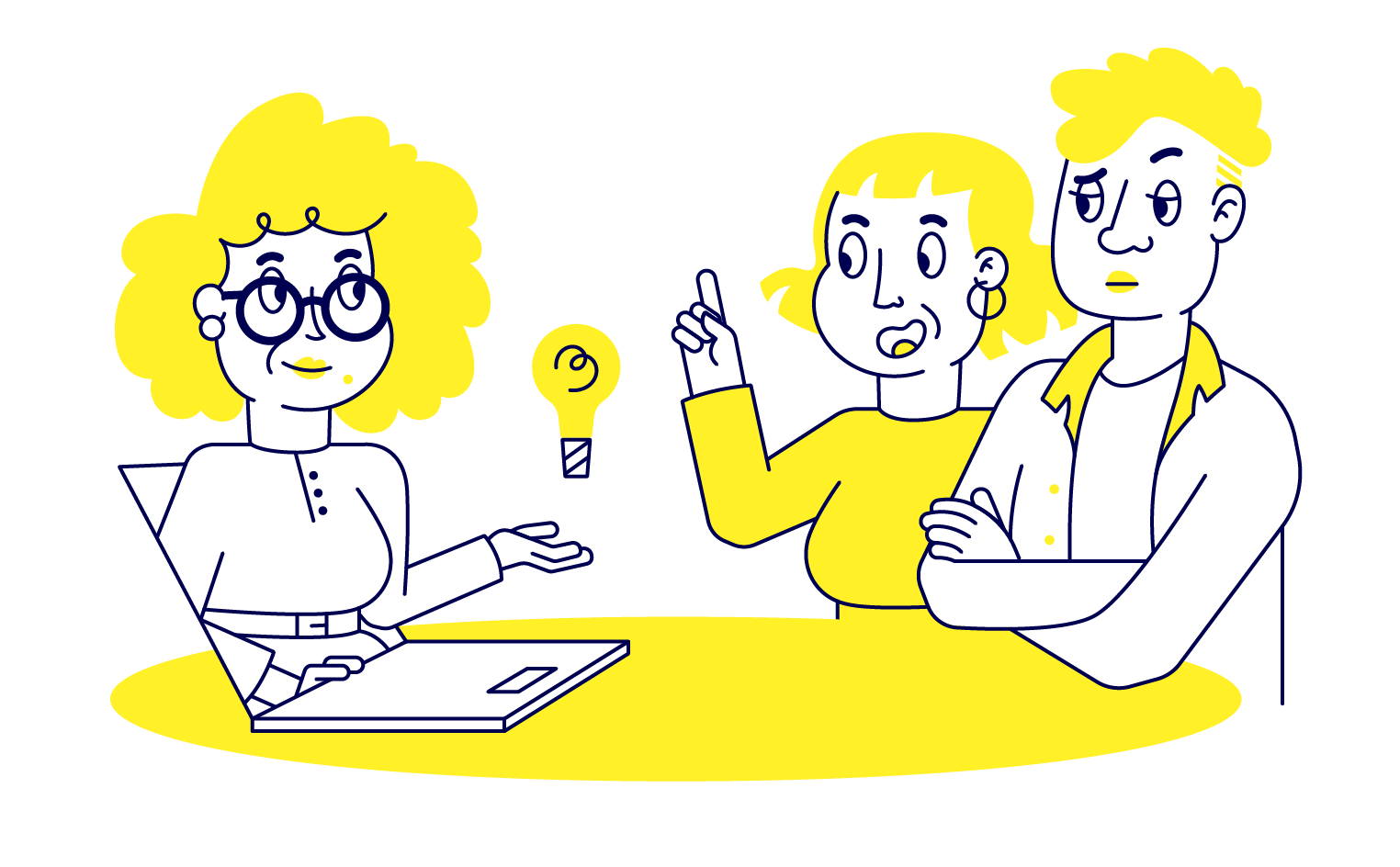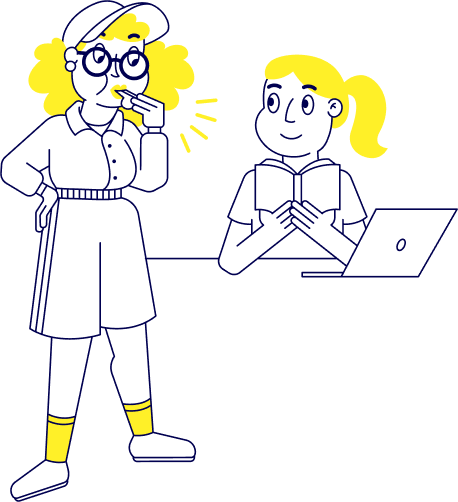Do you want your team to perform well and become more resilient?

Your company offers the Auntie service. Auntie specializes in supporting all employees in their mental wellbeing. Find out what Auntie is and how you as a manager can get the most out of this service here.
Scientifically based packages on the topic of mental wellbeing
The "Auntie Packages" include customized video sessions designed to help you with mental challenges.
Each package includes five 45-minute online sessions with an Auntie Professional, supplemented by informative reading material and helpful exercises.
Good mental wellbeing promotes your team's productivity, adaptability and creativity.
Long-term reduction in sick days and absences due to mental health.
98% of our users recommend the Auntie service to others - even within your company. This strengthens the corporate culture in the long term.
It only takes 1 - 3 days from registration to the first session, so your team members get support quickly.
Signals and behaviors from your employees
that you should look out for
If your employee is increasingly skipping their breaks and working overtime, this could indicate that they are overworked. There is a package named “Stressed Out” for this. If your employee seems increasingly exhausted or even says that they can barely keep up with their tasks, you should take this as a warning signal.
Does your employee often arrive late and seem sleepy to you? This, coupled with frequent consumption of coffee or energy drinks, could indicate sleep problems, which is what the "Sleepless in Seattle" package is designed for. The employee could use support here, especially if they have difficulty concentrating and are forgetful due to fatigue.
Does your employee avoid social team events or would they rather bury themselves in their home office than come into the office? If they haven't done this before and are less motivated than usual, they may be going through a bad phase. This is where the "Feeling Down" package can help to give him more energy again.
Have you noticed that your employee has lost their self-confidence and doubts their abilities? Especially for new team members or those returning after a longer break, it is usually difficult to feel comfortable with the change. Auntie's "Back to Business" package is designed for this and can provide support during the transition phase.
Frequent (short) sick notes should make you as a manager question whether there is more to it than meets the eye. Our "S.O.S." package is designed for urgent situations if something has thrown your employee off course.
Auntie materials
Psychological safety: the bedrock of any organisation
Discover how fostering psychological safety empowers teams to innovate, learn, and thrive in today’s dynamic work environment.
Click hereSkilled emotional leadership enhances work — learn how.
Skilled managers value emotional intelligence, knowing it boosts team well-being, commitment, and psychological safety.
Click here6 tips for unwinding from work
Our mind deserves a break. Find out how you can recognize whether your mind is overloaded and how to recover.
Click hereKnown behaviors of your employees that you should pay attention to and which package fits them
Stressed out
- Your employee seems exhausted, stressed and often says that they can barely keep up with their tasks or feel under constant pressure.
- Your employee hardly ever takes breaks or regularly continues to work after work.
Overachiever
- Your employee has high expectations of themselves and often works on tasks longer than necessary to achieve the "perfect" result. They are not good at accepting criticism.
- Inability to say "no": The employee constantly takes on new tasks, even if they are already overloaded, and has difficulty setting boundaries.
Lost in transition
- Your employee is going through a phase of upheaval - such as a change of role or personal changes - and seems lost or insecure.
- Your employee seems unsure, avoids making decisions or takes a long time to decide, even for everyday tasks. Frequent change of priorities.
Sleepless in Seattle
- Your employee often reaches for coffee or energy drinks and complains about not getting enough sleep. They seem tired, especially in the morning, and take longer to get going.
- Your employee seems to have difficulty focusing on tasks, forgets details more often or makes more mistakes than usual.
Feeling down
- Your employee seems unmotivated, brings less energy to projects and shows little enthusiasm for their tasks.
- The employee avoids team activities or events and seems rather distant. They also seem increasingly negative and pessimistic about their work.
Back to business
- Your employee shows signs of nervousness, such as frequent hand rubbing, a flushed face or a tense expression.
- Your employee shows little self-confidence and doubts their abilities, which can manifest itself in cautious or defensive behavior.
Loveboat Sinking
- Your coworker often seems preoccupied with personal phone calls or messages, possibly related to relationship problems.
- In confidential or private moments, he talks to colleagues about his relationship problems or general difficulties in his private life.
S.O.S.
- Your employee is calling in sick more frequently or working from home more often to keep to themselves, possibly to deal with emotional stress.
- In conversations, the employee lets it be known that they are currently struggling with difficult personal issues or that a certain event is stressing them out.
Observe your employee and look out for certain warning signs
Then you should seek an open discussion with your employee. Make sure that you can talk in private and that privacy is guaranteed.
Find the right package for your employee together
You can make suggestions to your employee as to which package might be suitable for them. In the end, however, they should decide for themselves which package is right for them.
Encourage your employee to register for a package
Next, you should send your employee the link to register. You can request this from your HR team or from our German Auntie team.
Keep an eye on your employee and plan check-ins
The use of the Auntie Package extends over several weeks through the 5 sessions. To make sure the support is helping, keep an eye on them and organize check-ins to stay in touch.

About Auntie
Auntie offers preventative mental wellbeing services to help your employees find new perspectives and solutions to situations that cause stress or lack of motivation, for example, before they become overwhelming.
Employees have the opportunity to arrange confidential one-to-one appointments with a qualified mental wellbeing specialist. They also have access to a wide range of mental wellbeing exercises and other related materials.
The Auntie Professionals have a background as psychologists and therapists.
